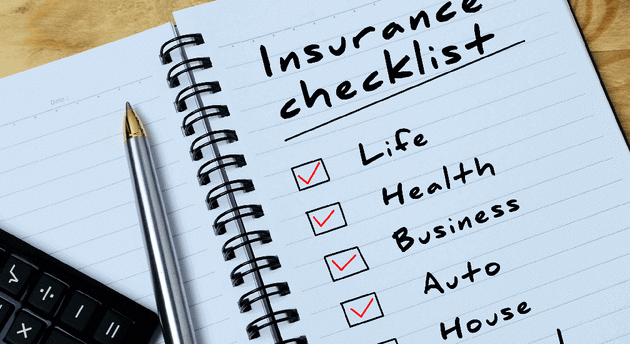In today’s uncertain world, insurance plays a critical role in protecting individuals and families from financial setbacks. From health to auto, life, and property, an insurance plan offers peace of mind and security when life takes unexpected turns. However, understanding the fundamentals of insurance and choosing the right plan can be challenging.
This article breaks down everything policyholders need to know about insurance plans, their components, how to select the right one, and how to use it effectively.
What Is an Insurance Plan?

An insurance plan is a contract between you and an insurance company. You pay regular premiums, and in return, the insurer provides financial compensation for specified losses or services under agreed conditions.
Common Types of Insurance Plans
- Health Insurance – Covers medical expenses such as doctor visits, prescriptions, surgeries, and preventive care.
- Life Insurance – Offers a financial payout to your beneficiaries upon your death.
- Auto Insurance – Provides coverage for vehicle damage, liability, theft, and personal injuries from accidents.
- Homeowners/Renters Insurance – Protects your property and possessions from risks like fire, theft, and natural disasters.
- Disability Insurance – Replaces income if you’re unable to work due to injury or illness.
- Travel Insurance – Offers protection against losses while traveling such as trip cancellations or emergency medical treatment.
Key Components of an Insurance Plan
Understanding your policy’s structure is essential for using it wisely. Here are the major elements.
Premium
A premium is the regular amount you pay to maintain your insurance policy. It can be monthly, quarterly, or yearly. Factors affecting premium include your age, health, risk profile, location, and the type of insurance.
Deductible
A deductible is the amount you must pay out of pocket before the insurance coverage begins. For example, with a $500 deductible, you cover the first $500 of a claim, and the insurer pays the rest.
Policy Limit
This is the maximum amount your insurer will pay for a claim or during a policy period. Policy limits can apply to individual incidents or be annual/lifetime caps depending on the plan.
Copay and Coinsurance
- Copayment (Copay): A fixed fee you pay for a specific service like a doctor visit or medication.
- Coinsurance: The percentage of costs you pay after meeting your deductible. For instance, you may pay 20% while the insurer pays 80%.
Exclusions and Limitations
Insurance plans always include exclusions—specific risks or situations not covered. Common examples are cosmetic surgeries in health insurance or flood damage in home insurance unless you buy a separate rider. Limitations restrict coverage under certain conditions, such as coverage caps for orthodontics under dental insurance.
How to Choose the Right Insurance Plan
Assess Your Needs
Begin by evaluating your lifestyle, dependents, health, and financial goals. A young professional may prioritize health and auto insurance, while a parent might consider life insurance and child health plans.
Compare Different Plans
Use online comparison tools or work with insurance agents to compare:
- Coverage amounts
- Premium costs
- Deductibles and copays
- Claim settlement ratios
- Customer service reviews
Understand the Policy Details

Don’t skip the fine print. Read the policy wordings carefully to understand what is covered and what isn’t, along with terms of cancellation, renewal, and claim procedures.
Consider Your Budget
Balance the level of coverage you need with what you can afford. A low premium plan might have higher deductibles or more exclusions. Choose a plan that gives comprehensive protection at a manageable cost.
Common Mistakes to Avoid
Ignoring Exclusions
Many people assume their policy covers everything. Always read exclusions carefully and consider additional riders if necessary.
Choosing Based Only on Price
While affordability is crucial, cheap plans often come with limited coverage and high out-of-pocket expenses. Balance cost and value.
Not Reviewing Annually
As your life evolves, so do your insurance needs. Review your policies annually and adjust coverage for changes like marriage, having children, or buying a home.
Making the Most of Your Insurance Plan
Keep Documents Organized
Store physical and digital copies of your insurance policy, ID cards, and claim forms in an easily accessible place.
File Claims Promptly
If an insured event occurs, notify your insurer immediately and follow their claim procedures. Delays can result in claim rejection.
Use In-Network Services
For health, dental, or auto insurance, using in-network providers helps avoid surprise billing and ensures smoother claim processing.
Take Preventive Measures
Many insurers reward safe behavior—like routine check-ups, home maintenance, or defensive driving—with discounts or premium reductions.
The Role of Insurance Agents and Brokers

Insurance agents and brokers help you choose and purchase insurance policies. Agents represent specific companies, while brokers are independent and can compare policies across multiple insurers. They can explain complex terms, help you understand your coverage, and assist in filing claims.
Emerging Trends in Insurance Plans
Digital Insurance
Online platforms and mobile apps now allow customers to compare, buy, and manage insurance with ease. Instant quotes, digital policy issuance, and paperless claims are becoming the norm.
Usage-Based Insurance
This model, especially popular in auto insurance, adjusts premiums based on your driving behavior monitored via telematics devices.
Customizable Policies
Many insurers now offer modular plans where you can choose only the coverage you need, making them more personalized and cost-effective.
Benefits of a Good Insurance Plan
Financial Security
Insurance protects your savings and assets from being wiped out by unexpected events.
Access to Quality Services
Health and dental insurance often include networks of high-quality providers.
Peace of Mind
Knowing you’re protected against major risks brings comfort and stability.
Legal and Social Compliance
Many forms of insurance, such as auto liability, are legally required. Insurance can also be necessary for loans or housing rentals.
Real-Life Scenarios
Scenario 1: Health Emergency
Maya had a sudden medical emergency requiring hospitalization. Her health insurance covered 90% of the hospital bill, saving her over $7,000 in costs.
Scenario 2: Auto Accident
Jake’s car was damaged in a hit-and-run. Thanks to comprehensive auto insurance, his repair costs were fully covered after a $500 deductible.
Scenario 3: Home Theft
Anna’s home was burglarized, and $10,000 worth of electronics were stolen. Her homeowner’s insurance policy covered the loss, minus her $1,000 deductible.
Also Read : How To Choose The Right Business Insurance For Your Company
Conclusion
Understanding the essentials of an insurance plan is key to making informed decisions that protect your health, finances, and future. From knowing the types of insurance and key terms like premiums, deductibles, and exclusions, to comparing plans and using them effectively, every policyholder should be proactive and well-informed.
Insurance is not just a formality—it’s a strategic tool that provides security and confidence when life’s unexpected moments arise.
Frequently Asked Questions (FAQs)
What is the best type of insurance to have?
The best insurance depends on your needs. For most people, health, auto, and life insurance are essential. Homeowners or renters insurance is also important depending on your living situation.
How can I lower my insurance premiums?
You can reduce premiums by increasing your deductible, bundling multiple policies, maintaining a good credit score, living a healthy lifestyle, and avoiding frequent claims.
What happens if I miss a premium payment?
Missing a payment can lead to policy lapse or cancellation. Some insurers offer a grace period, but it’s best to set up auto-pay or reminders to avoid this.
Are online insurance plans trustworthy?
Yes, many reputable insurers operate online. Always verify the company’s license, read reviews, and ensure they are registered with your local insurance regulator.
What should I do when filing a claim?
Gather all necessary documents, contact your insurer immediately, fill out claim forms correctly, and keep copies of all communications. Follow up regularly until your claim is settled.




